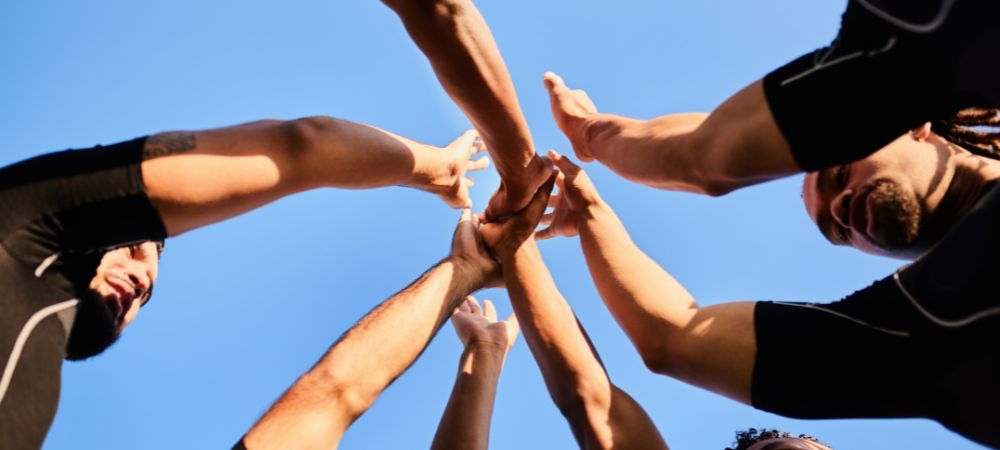

The Importance of Physical Conditioning for Team Athletes
Physical conditioning is, without a doubt, crucial for team athletes. Without proper conditioning, athletes just can't perform at their best. It's not just about being strong or fast; it's about endurance, agility, and overall fitness. To learn more click currently. You'd think everyone knows this by now, but surprisingly some still overlook the significance of physical conditioning.
Firstly, let's talk about stamina. A game can be long and demanding. If an athlete doesn't have the stamina needed to last through the entire game, they're gonna struggle big time. They won't be able to keep up with the pace or handle the pressure in critical moments when their team needs them most.
Moreover, injuries are less likely to happen if an athlete's body is well-conditioned. Proper training strengthens muscles and joints which in turn makes them less prone to strains or sprains. An injured player ain't much help to their team sitting on the sidelines.
Flexibility is another key component often neglected in discussions about physical conditioning. When athletes are flexible, they can move more freely and execute plays better. Imagine trying to dodge opponents or stretching out for that last-second catch without good flexibility-it's almost impossible!
We also can't ignore mental toughness which gets enhanced through rigorous physical training programs. When athletes undergo grueling workouts, they develop resilience and determination that translate onto the field during actual games.
However-and here's where it gets interesting-too much focus on physical conditioning can sometimes backfire. Overtraining can lead to burnout and fatigue which isn't good either! Balance is essential; knowing when to push hard and when to rest makes all the difference.
In summary (and believe me I don't say this lightly), ignoring physical conditioning would be a big mistake for any team athlete looking to excel in their sport. It brings together strength, endurance, flexibility while reducing injury risks-the whole package! So yeah folks should definitely pay attention cause it's super important!
Oh man, the role of skills training in enhancing team performance is just huge! I mean, when you think about it, teams can't really do much if they don't have the right skills. It's like trying to build a house without any tools. You just can't.
First off, let's talk about communication. Skills training often focuses on improving how team members talk to each other. This isn't only about talking more; it's about talking better. When people are trained to communicate effectively, misunderstandings happen less often and everyone knows what's going on. And guess what? That means fewer mistakes and more getting things done right the first time.
But wait, there's more! Training also helps in problem-solving abilities. Teams face all sorts of challenges every day. Without proper skills, they'd be stuck scratching their heads instead of finding solutions. Training programs can equip them with strategies for tackling problems head-on and coming up with creative solutions they might not have thought of otherwise.
And hey, don't forget about leadership skills! Not everyone is a born leader but many can learn to lead if given the chance through training programs. A team with good leaders tends to perform better because there's direction and someone keeping everything on track. Leaders who've been trained well know how to motivate their teammates and bring out the best in 'em.
Now some folks might think that training ain't necessary or it's too expensive-oh boy, they're wrong! Investing in skills training actually saves money in the long run by making teams more efficient and reducing errors that cost time and resources to fix.
One thing that's super important too is adaptability. The world changes fast these days; new technologies come out all the time and business environments shift constantly. Skills training helps teams stay up-to-date with these changes so they don't fall behind competitors who are quicker on their feet.
So yeah, while some people may argue against investing in team skills training saying it's unnecessary or costly upfront-it's clear as day that its benefits far outweigh those initial costs-and then some!
To sum it up: effective communication, stellar problem-solving abilities, strong leadership qualities-all boosted by good ol' fashioned training-are critical for any high-performing team today-or tomorrow even!
FIFA World Cup, one of the most respected football ( football) tournament, was first held in 1930 and has actually given that come to be one of the most extensively checked out and followed showing off event worldwide.
Basketball was invented in 1891 by Dr. James Naismith, that looked for a safe interior sport to keep athletes fit throughout the wintertime.
The Super Bowl, the championship game of the NFL, is recognized for its lavish halftime shows and high-profile commercials, ending up being a considerable occasion in American culture past sporting activities.
The Iditarod Path Sled Pet Race, among one of the most challenging endurance competitors in the world, runs over 1,000 miles from Anchorage to Nome, Alaska, in severe winter conditions.
In the world of team sports, the role of a captain is multifaceted and demanding.. One of the most crucial aspects?

Posted by on 2024-07-08
Team sports have been often hailed as a great tool for improving mental health.. Well, they can be, but let's not pretend there aren't challenges and considerations to keep in mind.

Posted by on 2024-07-08
**Adapting Communication Styles for Diverse Teams**
In team sports, communication ain't just important—it's crucial.. You'd think that just passing the ball or shouting instructions would be enough, but oh no, it's way more than that.
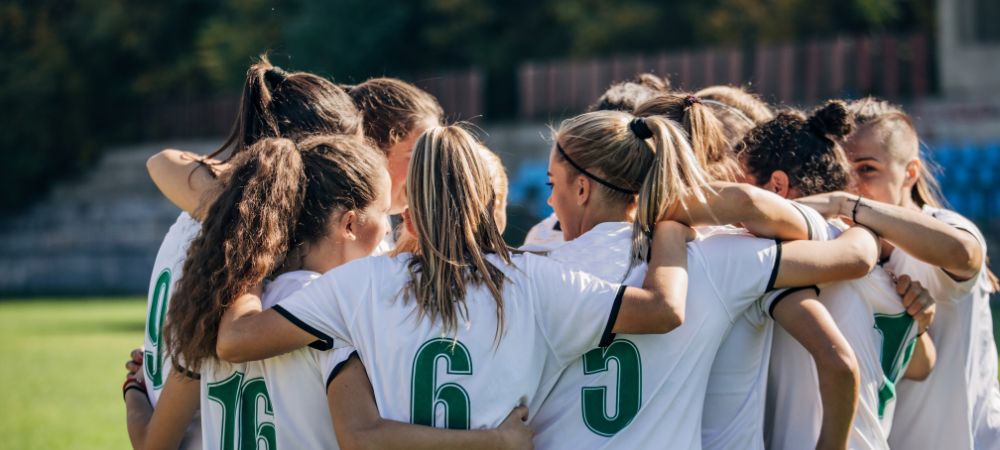
Posted by on 2024-07-08
In the fast-paced world of sports, teams don’t always have the luxury of time to sit back and analyze every move they've made.. Often, it's critical to monitor progress and make adjustments based on feedback instantly.
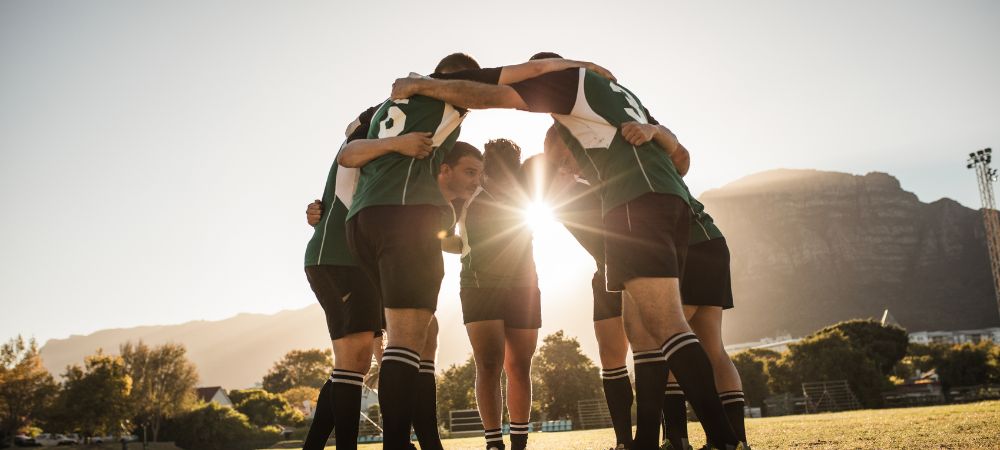
Posted by on 2024-07-08
Transforming an average team into champions might sound like a daunting task, but it’s not impossible.. Sports techniques have been time-tested and proven to turn the ordinary into extraordinary.
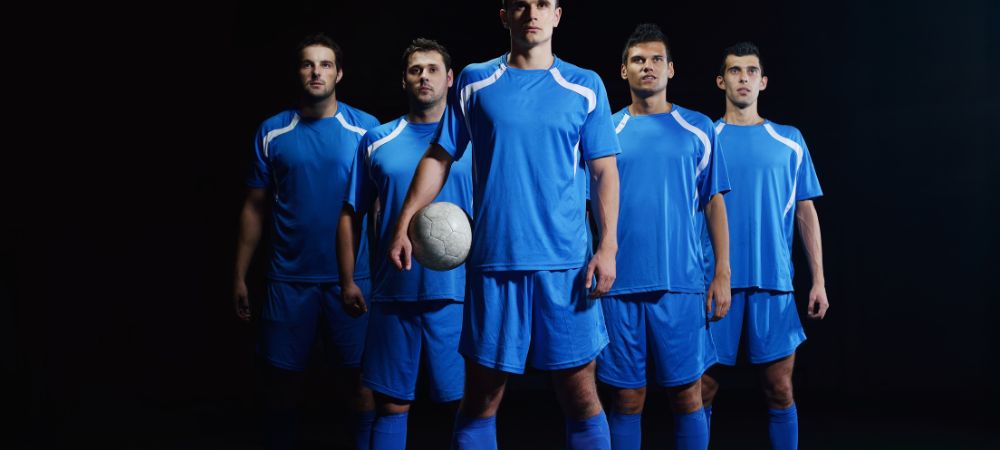
Posted by on 2024-07-08
Continuous Improvement and Adaptation
When it comes to mastering the art of team dynamics, one thing's for sure: you can't expect perfection overnight.. It ain't gonna happen.

Posted by on 2024-07-08
Training and development programs often focus heavily on the physical and technical skills necessary for success, but they sometimes overlook an equally crucial component: the psychological aspects of training. Building mental toughness and resilience isn't just important-it's essential. These traits help individuals navigate challenges, recover from setbacks, and ultimately achieve their goals.
Mental toughness isn't about being unfeeling or robotic. Rather, it's the ability to stay focused under pressure and maintain composure when things aren't goin' your way. It's that inner strength that pushes you through when your body is screaming to stop. Without it, even the most talented people can falter at critical moments.
There are many ways to develop mental toughness. One effective method is to embrace discomfort rather than avoid it. This doesn't mean putting yourself in harmful situations; instead, it means stepping out of your comfort zone regularly. Whether it's tackling a new project at work or pushing yourself harder during a workout, these experiences build resilience over time.
However, it's not just about enduring pain or difficulty; it's also about having the right mindset. Positive self-talk can play a huge role here. If you're constantly telling yourself "I can't do this," guess what? You probably won't be able to do it! On the flip side, affirmations like "I've got this" or "I'm capable" can make all the difference.
Resilience is another key psychological aspect of training that goes hand-in-hand with mental toughness but isn't quite the same thing. While mental toughness is about pushing through adversity in the moment, resilience involves bouncing back after setbacks have occurred. It's about recovering quickly and moving forward without letting past failures drag you down.
One way to foster resilience is by setting realistic goals and celebrating small victories along the way. These mini-successes provide motivation and remind us that progress is bein' made, even if it's slow at times. Another strategy involves learning from mistakes rather than dwelling on them-easier said than done!
Social support also plays an integral role in building both mental toughness and resilience. Having a network of friends, family members or colleagues who believe in you can offer emotional support during tough times. They might not solve your problems for you (and they shouldn't), but knowing someone has your back makes facing difficulties a bit more manageable.
In conclusion (or should I say finally?), focusing only on physical capabilities without addressing psychological aspects leaves any training incomplete-not to mention less effective overall! By actively working towards building mental toughness and resilience through embracing discomforts , maintaining positive self-talk , celebrating small wins , learning from failures ,and leaning on social supports we equip ourselves better prepared handle whatever life throws our way . So let's give our minds as much attention as we give our bodies 'cause after all they're part parcel whole package .

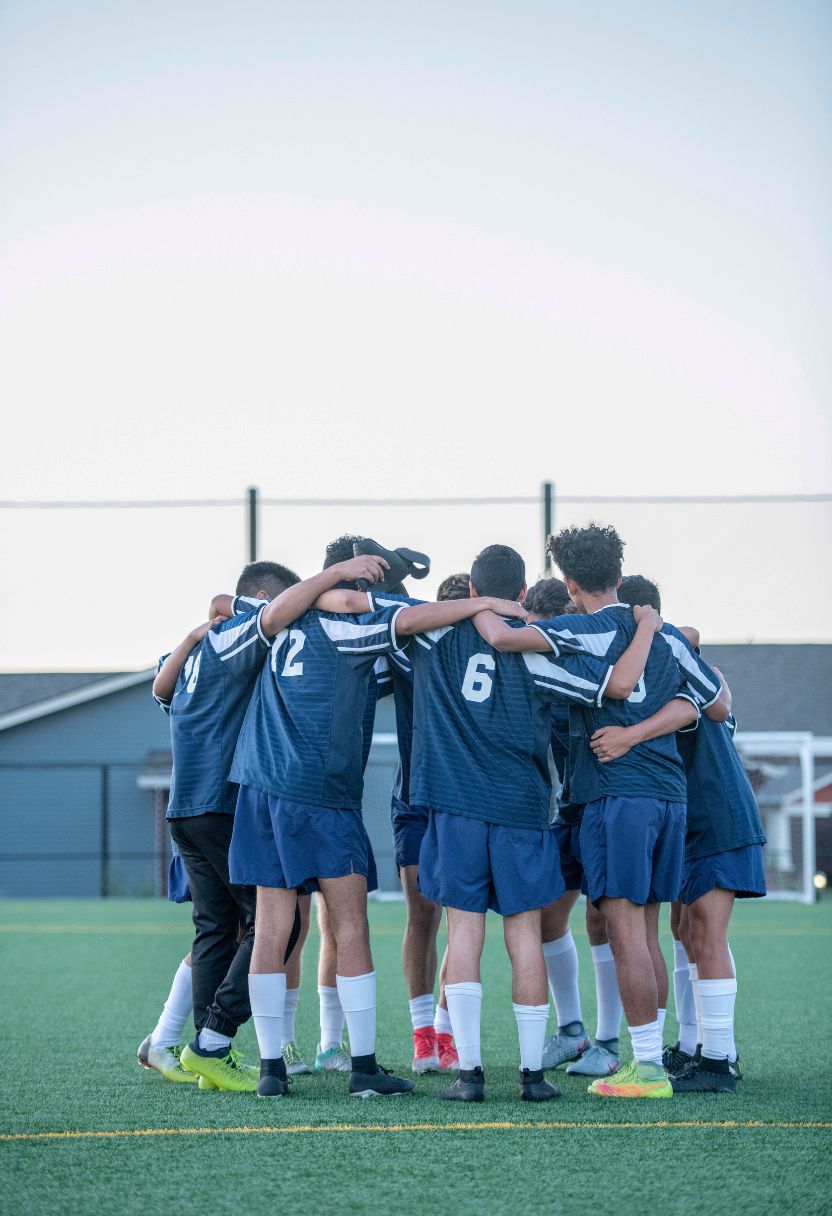
Effective Coaching Strategies for Developing Individual and Team Competencies
When it comes to training and development, effective coaching strategies can make a huge difference in developing both individual and team competencies. Honestly, it's not just about fancy techniques or elaborate plans – sometimes the simplest methods work the best.
First off, let's talk about individualized coaching. It's crucial to understand that each person is unique; they've got their own strengths and weaknesses. A one-size-fits-all approach ain't gonna cut it. Coaches should take the time to get to know their team members personally. By doing this, they can tailor their coaching techniques to fit each individual's needs. This doesn't mean you have to reinvent the wheel for every single person; small adjustments here and there can lead to big improvements.
One common mistake coaches make is focusing too much on what's wrong rather than what's right. Sure, addressing weaknesses is important, but don't forget to highlight strengths as well. Positive reinforcement goes a long way in boosting morale and motivation. It ain't all sunshine and rainbows though – constructive criticism has its place too, but balance is key.
Now, let's shift gears a bit and talk about team coaching. Building a cohesive team requires more than just bringing together talented individuals. Team-building exercises are great, but they shouldn't be overdone or forced – nobody likes those awkward trust falls! Instead, encourage open communication among team members through regular meetings where everyone gets a chance to voice their opinions.
Conflict resolution skills are another essential part of effective team coaching. Disagreements will happen; it's inevitable when you've got diverse minds working together. The trick isn't avoiding conflict altogether but managing it effectively when it arises. Teach your team how to address issues openly without finger-pointing or blame games.
Another strategy that often gets overlooked is setting clear goals – both short-term and long-term ones. Without specific objectives, both individuals and teams can lose direction easily. Make sure everyone knows what's expected of them and why it's important for the bigger picture.
Lastly (but definitely not least), continuous feedback loops are vital in any effective coaching strategy. Don't wait until annual reviews to provide feedback; it's neither timely nor helpful by then! Regular check-ins allow for ongoing adjustments that keep everyone on track.
In conclusion (or should I say “to wrap things up?”), effective coaching strategies require personalization for individuals while fostering unity within teams. It's about balancing positive reinforcement with constructive criticism, encouraging open communication without forcing interactions, managing conflicts wisely instead of avoiding them, setting clear objectives so no one loses sight of goals, and providing continuous feedback rather than sporadic inputs.
Remember folks: good coaches aren't born - they're made through experience combined with empathy!
The Impact of Nutrition and Recovery on Athletic Performance
When it comes to athletic performance, nutrition and recovery are often undervalued, but they shouldn't be. Seriously, without the right fuel and proper rest, even the most dedicated athletes can find themselves struggling to reach their peak. I mean, who wants that? There's just no denying that these two factors play a crucial role in training and development.
First off, let's chat about nutrition. What you eat really does matter. Athletes require a balanced diet filled with carbs, proteins, fats, vitamins, and minerals to perform at their best. You can't expect to run a marathon or lift heavy weights if your body ain't got the energy for it. Carbs provide that quick energy boost while proteins help repair muscles after those grueling workouts. And don't forget fats! They're essential too for long-lasting energy.
But wait! It's not just about what you eat; it's also when you eat it. Consuming the right nutrients at the wrong time can actually hinder performance rather than enhance it. For example, eating a heavy meal right before intense exercise isn't gonna do anyone any favors – stomach cramps galore! Timing is key; pre-workout snacks should be light yet nutritious.
Now let's turn our attention to recovery – oh boy, where do we start? Some people think pushing through pain and fatigue is heroic or something but honestly? It's not smart at all. Adequate sleep is fundamental here because that's when your body does most of its repair work-those muscle tissues have got some serious mending to do overnight!
Additionally-and this might come as a surprise-rest days are super important too! Sure thing: working hard is essential but so is letting your body take a breather every now and then (seriously). Overtraining leads not only to injuries but also mental burnout which nobody wants.
Hydration plays an equally vital role in both nutrition and recovery stages-it can't be stressed enough how important water intake is! Dehydration can lead to decreased coordination (dangerous!) slower reaction times (not good!), among other issues like cramping or dizziness during exercises.
In conclusion-nutrition & recovery aren't aspects one should overlook if aiming for optimal athletic performance-they go hand-in-hand ensuring you're always ready physically AND mentally prepared each day towards achieving those fitness goals effectively without unnecessary setbacks along the way - so why ignore 'em?
Remember: Eat well + Rest up = Perform better... Simple math really!
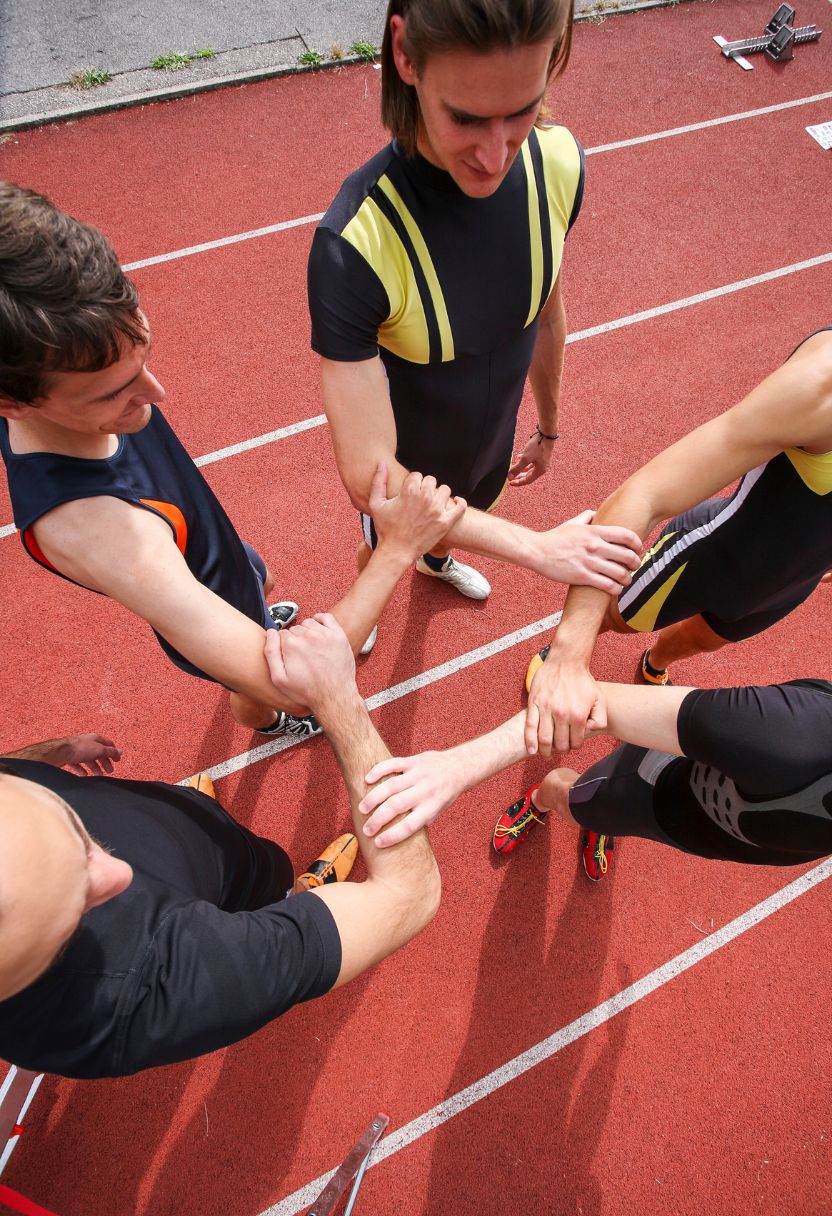
Monitoring Progress: Use of Technology and Analytics in Team Sports Training
In today's fast-paced world of team sports, it's not an exaggeration to say that technology has become a game-changer. I mean, who would've thought a decade ago that we'd be using data analytics and wearable tech to monitor athletes' performance so closely? It's almost like something outta a sci-fi movie! Yet here we are, living it.
So, what's the big deal with all this tech stuff anyway? Well, for starters, the use of technology in training ain't just about fancy gadgets or cool apps; it's about making informed decisions that can actually enhance players' skills and overall team performance. Think about it: coaches used to rely purely on their instincts and experience. Now they have access to real-time data that can tell them exactly how hard a player is working or whether they're at risk of injury.
But let's not get carried away thinking technology's gonna solve all our problems magically. It doesn't replace good old-fashioned hard work or the human touch in coaching. There's no denying that athletes still need motivation, encouragement, and personalized attention from their coaches. However, by incorporating analytics into their training regimens, teams can identify strengths and weaknesses more accurately than ever before.
Wearable devices like GPS trackers and heart rate monitors provide valuable insights into players' physical condition during practice sessions and games. These gadgets collect tons of data points - from speed and distance covered to heart rate variability - which can then be analyzed to fine-tune training programs. And hey, if you're worried about privacy issues or feeling like Big Brother's watching you 24/7... well yeah that's understandable! But most teams take these concerns seriously and ensure that data is handled responsibly.
Moreover, video analysis tools have revolutionized the way coaches evaluate both individual performances as well as team dynamics. By breaking down plays frame-by-frame (literally), they can pinpoint areas where improvements are needed or strategies could be tweaked for better results next time around.
And oh boy – let's talk about recovery! Athletes today don't just train harder; they also recover smarter thanks to advancements in technology such as cryotherapy chambers or compression wearables designed specifically for enhancing muscle recovery post-exercise.
Of course though not everyone's fully onboard with this tech craze yet – some traditionalists argue it takes away from the essence of sport itself while others fear over-reliance might stifle natural talent development among younger players especially those still learning basics without getting bogged down by too much technical jargon early on!
In conclusion: while there ain't any substitute for passion dedication teamwork when comes achieving greatness field court rink whatever sport may be embracing technological innovations certainly offers exciting new possibilities monitoring progress improving overall efficiency effectiveness within realm professional amateur athletics alike so why not give shot see how far we go together?